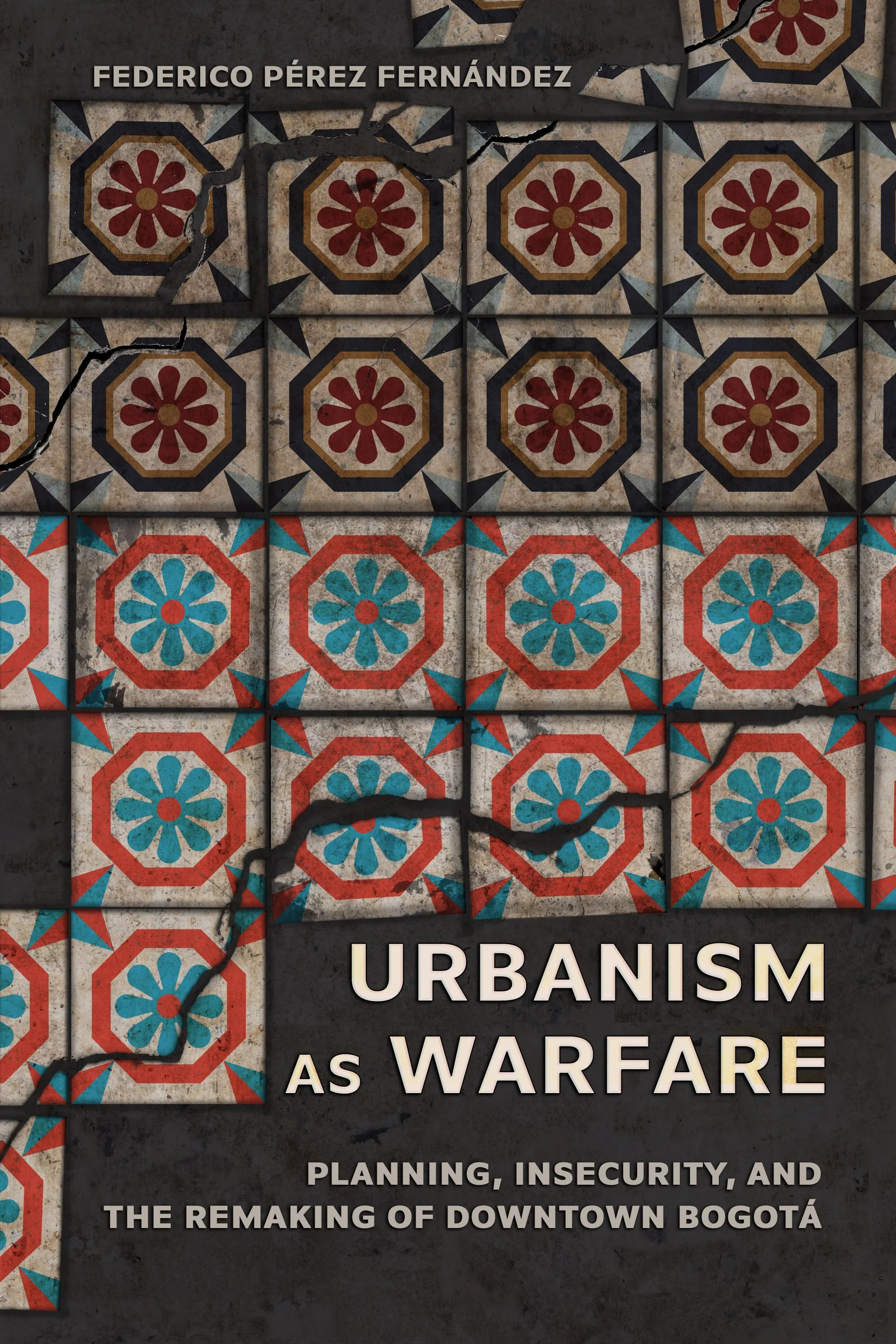Cornell University Press, 2025 (Expertise: Cultures and Technologies of Knowledge, series edited by Dominic Boyer)
Urbanism as Warfare explores connections between regimes of (in)security and projects of urban modernity, bureaucratic control, and propertied citizenship in downtown Bogotá. Federico Pérez Fernández reveals how militarism, class warfare, and violence have infused urban visions and struggles in Colombia's capital. Repertoires of insecurity become modes of technocratic warfare encoded in expert diagnostics and bureaucratic procedures. They also form the basis of insurgent knowledges that contest the violence of property and planning.
Battles over Bogota's renewal illuminate the afterlives of warfare central to planning practices and urban materialities. Pérez Fernández shows how such processes are historically sedimented in urban spaces, transforming buildings into battlefields, eviction notices into artifacts of destruction, and urban property into a threatening weapon. Urbanism as Warfare excavates these residues of violence to illuminate the enduring role of local and global security discourses in the making and remaking of urban worlds. Ultimately, the book considers the promise and limits of emergent urban epistemologies that move beyond the logics of security and territorial control and re-envision city-making as a collective practice of post-conflict reconstruction.
